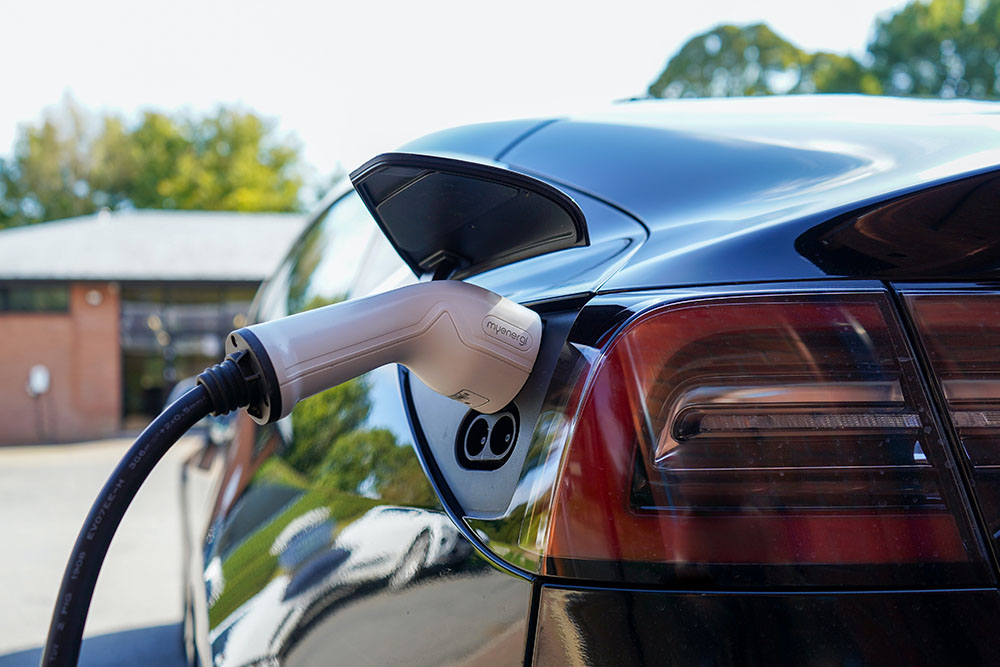Bure Valley Group is an investment introducer platform which links successful investors with exciting, innovative UK startups seeking funding. This content is for information purposes only and should not be taken as financial or investment advice.
With the UK committed to its net-zero target, decarbonising all sectors by 2050, electric vehicles (EVs) are gaining increasing attention. Not just from buyers, but also from investors.
The UK government is increasingly incentivising the adoption of EVs – e.g. through its planned ban on new petrol and diesel cars by 2030. Hybrid cars will be banned from 2035.
What opportunities (and risks) could these trends present to investors? Below, we explore this question in more detail – identifying some potential rewards and pitfalls.
To find out more about our EIS pipeline and other opportunities, visit our portfolio page here. For enquiries regarding our latest projects and funding, you can reach us via:
+44 160 334 0827
The electric vehicle (EV) market: an overview
Electric vehicles (EVs) do not simply encompass electric cars such as the Tesla Model S. It describes an automotive class that uses electric motors for propulsion, rather than fossil fuels.
Therefore, EVs can describe a range of vehicle types such as bicycles, trains and trams, buses, heavy goods vehicles (HGVs), aerial drones, submersibles and even manned aircraft.
Focusing on electric cars for a moment, Tesla won the prize for best-selling plug-in EVs in 2022, with 771,000 worldwide sales of the Model Y and 476,000 sales of the Model 3.
Yet larger, more long-standing car companies have also developed their own models to take a share of the pie. Last year, the Top 10 best-selling electric cars in the UK included the Kia e-Niro, the Volkswagon ID.3 and the Nissan Leaf.
Three companies build the UK’s passenger trains – Alstom, Hitachi Europe Ltd and Siemens Transportation Systems Ltd. In March 2022, 71% of all passenger train operator rolling stock was electric. 18% were diesel-powered.
HGVs in the UK are still largely powered by fossil fuels, with only 1 in 600 trucks powered by electric or hydrogen. However, manufacturers are investing heavily in these models.
Amongst these larger players, a range of innovative UK startups are also disrupting the scene. City Shuttle, for instance, offers sustainable, affordable urban transportation with EV models that offer superior capacity and carrying weight compared to many larger companies.
Opportunities, risks & trends in the EV market
Investing in EVs could simply involve picking stocks of public automotive manufacturers which are investing in their EV car line. Yet the growth potential here is limited.
Large automobile companies struggle to gain a competitive advantage over one another. Most offer a “mass market” approach in a landscape full of rivals offering a similar thing.
Certain parts of the world are growing their middle class (e.g. East Asia). In places like these, large car companies could grow sales without needing to try and siphon sales from rivals.
Companies like Tesla dedicate their value proposition to EVs. However, many of these stocks are currently very “hyped” and their share prices are largely overvalued. If a market correction comes and investors switch back to a value approach, this could result in a share price fall.
In short, it is difficult to find exciting opportunities in the public markets for EV investments. In 2023, moreover, the EV market is also hampered by global supply chain shortages – particularly regarding semiconductors (a key component in electric cars).
How can I invest in EVs?
In our view at Bure Valley Group, the most exciting EV investment opportunities can be found in the early-stage landscape. This private market offers a range of growing EV startups, many of which have an advantage over larger companies regarding the issues above.
We have already mentioned City Shuttle as an example. This UK startup avoids many of the supply chain problems currently plaguing large manufacturers, with all parts sourced and assembled in its UK plant in Essex.
The distribution EV (the “ePack”) can use the cycle lanes in busy cities like London – bypassing much of the congestion to achieve speedy delivery times. It can also carry more than other EVs on the market.
The pedal-assisted system can reduce last-mile co2 emissions by up to 87%, future-proofing it against the ULEZ (Ultra Low Emission Zone) coming into force in London in August 2023. This also makes the company an ideal candidate for future government “green” funding.
This is just one example of many home-growth UK startups breaking new ground here in the UK, offering exciting opportunities to investors.
To explore EV investment projects like these, we recommend approaching a professional investor network. This will help you access pre-vetted startup opportunities which you could join with other investors in funding.
Remember to diversify your investments and to conduct proper due diligence on an EV investment opportunity before including it in your portfolio. At Bure Valley Group, our experienced team can assist with the latter process with our exclusive investor network.
Invitation
Interested in finding out more about the exciting startup projects we have on offer to investors here at Bure Valley Group?
Get in touch today to start a conversation with our team and discuss some of the great investment memorandums we have available here:
+44 160 334 0827


